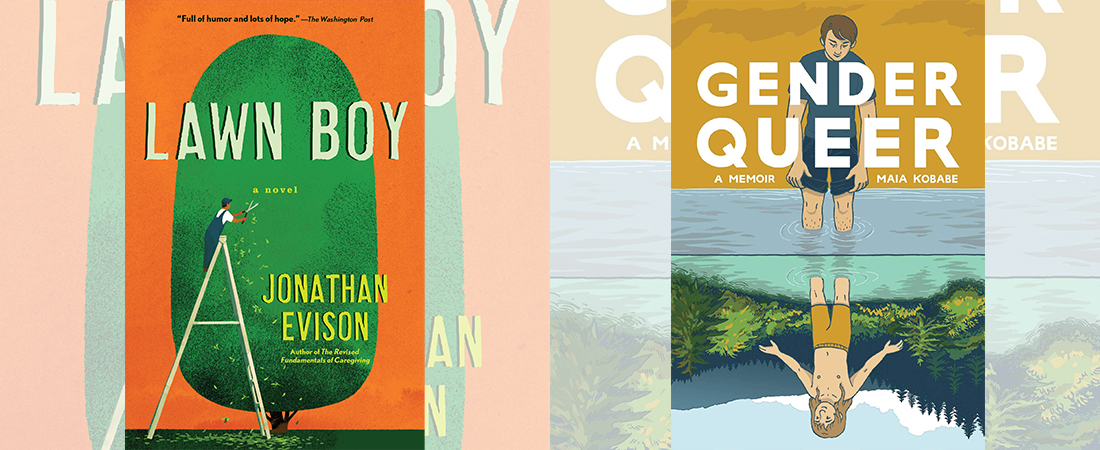Updated 11/23/2021: Fairfax County Public Schools in Fairfax, Virginia, have decided to return both Lawn Boy and Gender Queer to library shelves after completing a comprehensive review of the books. Review committees were formed for each book to evaluate them in their full context and both were determined to have sufficient value to students to be retained in school libraries.
Originally posted 10/15/2021:
The National Coalition Against Censorship has written to district officials in Fairfax County, Virginia, after two books were removed from school libraries pending the results of a challenge filed by a parent. The books, Jonathan Evison’s Lawn Boy, and Gender Queer by Maia Kobabe, are both award winning young adult novels aimed at readers aged 12-18 years. The removal does a disservice to students and may violate the First Amendment.
The books were challenged by a parent upset by their depictions of sexual situations. NCAC is deeply concerned by the removal of the books before a review could be completed. Under the district’s current regulations, a challenge can take up to 120 days to be adjudicated, allowing any parent challenge to prevent a book’s use for most of the school year.
The Supreme Court has established that public school officials’ discretion regarding the removal of library books is particularly limited to ensure the protection of students’ First Amendment right to access information because “students must always remain free to inquire, to study, and to evaluate, to gain new maturity and understanding” and “the school library is the principal locus of such freedom.” Board of Education v. Pico, 457 U.S. 853, 868-69 (1982).
In the same case, the Court also cautioned, “[l]ocal school boards may not remove books from library shelves simply because they dislike the ideas contained in those books and seek by their removal to ‘prescribe what shall be orthodox in politics, nationalism, religion, or other matters of opinion.’” Board of Education v. Pico, 457 U.S. 853, 872 (1982). Thus, the removal of books from public school libraries to suppress ideas is a violation of the First Amendment.
Books for teens often grapple with mature ideas in nuanced ways. Far too often, books are banned for particular scenes or passages taken out of the context of the full work. A review committee is charged with considering the value of the work as a whole, not passing judgements on the basis of individual words, scenes or illustrations. Books are quite often the safest, most accessible way for young people to engage with new ideas and situations, and can reflect realities of their lives they otherwise fear discussing. While individual parents are free to make choices about what their own children read, they must not be allowed to determine what materials all students have access to.
In addition to reminding the district of their First Amendment responsibilities, NCAC has offered to assist in updating their review policies to align with best practices.
NCAC’s letter was co-signed by the Authors Guild, Comic Book Legal Defense Fund, National Council of Teachers of English, PEN America Children’s and Young Adult Books Committee and Society of Children’s Book Writers and Illustrators.
Read the full letter to the school district below. Click here for a full screen view:


